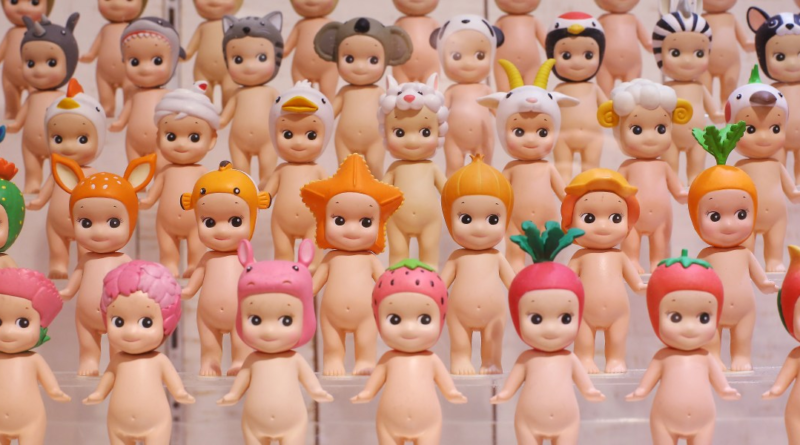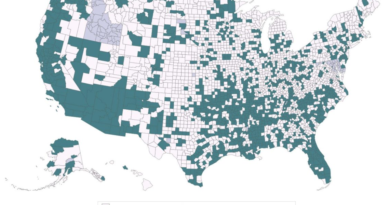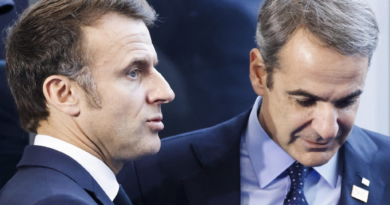Sonny Angel shortage explained: ‘There just aren’t enough pieces available’
There’s a new youth craze sweeping the nation. Gen Zers are convening at parks and cafés, speaking in coded acronyms, and negotiating in secret group chats—all in the pursuit of a three-inch-tall baby.
The Sonny Angel—a cute, collectible cherubic figurine, stark naked save for its colorful headwear—has exploded in popularity over the past two years thanks to social media. Demand is so high it’s led to a worldwide shortage from its North and South American supplier, Dreams USA—and spawned a gray market where 3,000% markups, Facebook Marketplace scams, and AliExpress fakes run rampant.
“There is absolutely a shortage of supply,” Dreams USA vice president Alan Buff told Fortune.
“Demand is surging in the U.S. and Western Europe and is also growing in East Asia again,” Buff continued. “The factory’s capacity limits are posing challenges, and many of our loyal retailers are getting only a fraction of the quantities they’d like to receive.”
Typically retailing for between $10 and $20 in the U.S., Sonny Angels come in blind boxes, which keep the Angels’ design a mystery until opened. With more than 1,000 variations wearing different headwear inspired by food, animals, or plants, fans search far and wide, trying to collect them all.
First invented in 2004 by Japanese designer Toru Soeya, Sonny Angels, given Soeya’s nickname, Sonny, were intended as a companion for young working women dealing with stress. Something about the doll—its sideways stare, round belly, and noticeable nudity—represents an innocence that perhaps harkens to simpler, less troubling times.
“He’s just a little baby,” Buff said. “He’s just a little boy.”
Besides helping fans connect with their “inner child,” Sonny Angels have also helped collectors connect with a community of devotees. Fans host trading meetups across the country, and share photos of their collections on a 22,000-member-strong subreddit.
Adi Sharpe, a 25-year-old collector from Athens, Ga., has hosted multiple Sonny Angel trading events, through which she became friends with other fans.
“It’s really cool to be able to create a community around such a niche interest that some people would find weird, and, you know, not normal,” she told Fortune.
It’s not always Sonny for retailers
The Sonny Angel shortage has hit the brand’s 441 authorized retailers across the U.S. They’re seeing high demand thanks to the dolls trending on TikTok. These retailers purchase their stock from Dreams USA, the exclusive distributor of all Sonny products in the Americas.
Newtown HQ, a pop-culture boutique in Queens, N.Y., has been an authorized seller of Sonny Angels since 2021. But it wasn’t until March 2023 that it sold out of Sonny Angels for the first time, Newtown HQ owner Cindy Cortez told Fortune. Since March, the cherubs have been flying off her store’s shelves faster than she can keep them in stock.
Prior to 2023, Cortez would typically order over 100 blind boxes at a time, and receive them in two weeks, she said. These days, she’s lucky to get more than 50, and has to wait about a month for an order to arrive.
“I’ve had to tell my customers … ‘We wish we could carry unlimited Sonnys, but we can’t get unlimited Sonnys,’” Cortez told Fortune.
To deal with demand, Cortez has also imposed limits on the number of Sonny Angels her customers can purchase. As of April 17, customers can purchase one Sonny Angel per collection per day—and some are maxing out.
“Some customers come every day, for three days straight,” she added.
It’s not just Cortez feeling the supply squeeze. The growing U.S. market is competing with the product’s popularity in East Asia, and factories are working at capacity, Buff said. Dreams USA hasn’t added a Sonny Angel retailer in over a year and has turned down multiple retailers with larger operations simply because the distributor doesn’t have enough dolls to go around.
“It would be unfair to sell to new customers when existing customers are not getting enough,” Buff said.
A gray Sonny market
Amid the shortage and bottlenecked distribution of the dolls, fans have self-organized a gray market for Sonny Angel trading, complete with its own conversion rates.
Sharpe, the Georgia-based collector who owns more than 100 Sonny Angels, has hosted multiple trading events at a local gift store. Between 50 and 100 people attended the most recent event, Sharpe estimates, with some people driving over two hours to attend.
At these events, Sonny Angel owners barter for one another’s figurines, determining each doll’s value based on its rarity in the blind boxes. One rare Sonny Angel can be worth multiple regular ones.
Ultra-rare Angels include Robby, a bear figurine that the company calls a “close friend of Sonny,” which only appears in one in 144 boxes. Sharpe got a Robby from a $14 blind box once—another collector is now selling the same one on e-commerce platform Mercari for $200. A Sonny Angel dressed as a green banana, which Sharpe purchased for around $25 at the official online store, is currently going for $300 on eBay.
Though Sharpe could easily make a tenfold profit by selling some of her Sonny Angels, she said she doesn’t “personally agree” with the resale market. She prefers the enjoyment of purchasing the doll from an authorized retailer, and opening the blind box for a surprise.
“It’s a cheap man’s way of gambling,” Sharpe told Fortune. “It’s my version of going to the casino.”
Kidults at heart
The Sonny Angel craze is part of a bigger trend of adults—not children—buoying the toy market. Dubbed “kidults,” the grownup demographic interested in toys and knickknacks now make up about 25%, or $9 billion worth of the toy industry, according to market data firm Circana. Between complex Lego kits for those age 18 and up and McDonald’s Cactus Plant Flea Market adult Happy Meals, brands once strongly associated with appealing to kids years ago are now marketing to the adults those kids grew into.
Sonny Angel has tapped into this little-treat market that Gen Z and millennials are embracing to cope with economic pressures—or just the burden of the angst of youth. Designed specifically for 15- to 30-year-olds, Sonny Angel was not meant to be a plaything but rather an emotional balm. With the tagline, “He may bring you happiness,” the doll is meant to bring a smile to the faces of those a little disillusioned with life.
“We’re not so arrogant as to assume that he will. But our hope is that he will bring you happiness,” Buff said. “That was the original intent and remains the intent today.”
While Sonny Angel’s rampant resale market is a sign that the targeted audience is connecting with the doll’s message, the company, which has been intentional about keeping Sonny as an “affordable luxury,” doesn’t condone the practice.
“Costs have gone up, but we have held our prices at the same level that they were in 2022,” Buff said. “What we’re seeing in the marketplace is very frustrating for us. Because we want Sonny Angel to be an affordable, comforting purchase.”
But beyond the economic implications of resale fueled by the desire to collect all of the different Angels, the gray market goes against the ethos of the brand. The vast majority of Sonny Angel customers use the doll as a novel pick-me-up. The few fanatics who tear into as many packages as they can, risk getting a duplicate, which fizzles the suspense and magic associated with unboxing the doll.
“There’s disappointment that comes when they get one they already have,” Buff said. “That’s not its intent. Its intent is to make you smile every time.”




